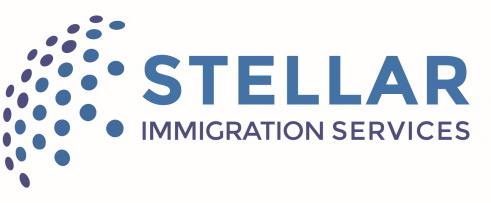Nanny Visa
What you need to know about Nanny Visas
For families moving to the UK temporarily using the Standard Visitor Visa scheme, or EU/EEA and UK
nationals coming to the UK for a short stay, it is possible to bring domestic staff with you via a specific
visa called the Domestic Worker in a Private Household Visa (DWPHV) – or, colloquially, the ‘nanny
visa’.
What is the Domestic Worker in a Private Household Visa (DWPHV)?
Various types of domestic staff can come to the UK via the DWPHV scheme. These include nannies,
cleaners, cooks, chauffeurs and personal carers. These domestic workers can work in the UK for a
maximum of six months or until their sponsoring employer returns to their home country and brings
the household with them. Nannies can remain in the UK on their visa within this period if their
employer travels abroad for short periods. Nannies can also travel abroad on a visa during this period
if their employer is going on holiday or undertaking business abroad.
Who is eligible to get a nanny visa?
Although the visa offers a high degree of flexibility to incoming domestic householders with a visa
sponsor, several key requirements determine eligibility. For example, the applicant must be:
-
- working as a domestic employee in a private household
- have been employed for a minimum of one year within that household
- be from outside the EEA or EU
- be expected to work for the sponsoring employer during their time in the UK
- be financially supported by the sponsoring employer
What are the requirements of the employer?
Under the DWPHV, the employer must be a British or EEA national who typically resides outside of
Britain and only plans to be in the UK for up to six months. The employer can also be a foreign
national visiting the UK for up to six months. The employer must also pay at least the UK minimum
wage and offer the nanny (and other household domestic workers) the same rights of employment
that other UK workers have. This includes working hour limits, a fair contract, holiday pay, etc.
Is it possible to get a nanny visa extension?
Nanny visas have strict terms attached to them, but various routes can be taken if you wish to apply
for an extension. The best course of action is to contact a specialist visa immigration service for
consultancy and advice and to progress these applications on your behalf.
What might result in a visa refusal?
If you do not adhere to the conditions of eligibility, then your visa is likely to be refused. Employers
must, for example, demonstrate that their nannies and domestic workers will be paid and employed
fairly in line with UK law. There has been significant negative press and concern about low-paid
domestic workers who lack fair working rights. The government will only issue visas to employers who
closely follow the law in this regard.
Why the right immigration service matters
When you choose a professional, expert immigration service, you greatly increase your chances of
obtaining the relevant nanny visa quickly and without undue stress or delay. Stellar Immigration
Services offers flexible consulting and legal services tailored to each client’s unique needs. We work
with you to provide the immigration services you need, using highly qualified and experienced
professionals who understand the complexity of the system and the processes required to navigate it
successfully.
UK Work Visas / Scale-Up Visa
The UK Home Office introduced the Scale Up visa on 22nd August 2022. Its purpose is to make it
easier for UK businesses to hire skilled labour from anywhere worldwide to help them manage rapid
growth. It is a sponsored visa, but it permits holders to switch to an unsponsored role after six months.
The Scale-up period is a particular phase in a company’s growth in which it develops from a start-up
into a successful, expanding business. It is not a specifically defined period. The eligibility of each
case is considered on its own merits.
A scale-up visa enables a worker from overseas to live and work in the UK for a UK-based company
and confers the right to bring dependent family members. After five years, this can lead to the
granting of indefinite leave to remain.
Eligibility Requirements
There are five qualifying conditions for obtaining a Scale Up visa. - Applicants require a Certificate of Sponsorship issued by an approved Scale Up sponsor
- Successful applicants must be employed full-time by their sponsor for at least the first six months of
their stay. After six months, they may move to another employer outside the sponsorship scheme - They must have received a job offer from an eligible Scale Up
- The job they have been offered must be a high-skilled one at a salary of at least £33,000 per annum
or the market rate, if higher - They need to meet the requirements of proficiency in the English language.
For the purposes of the visa, a Scale Up is defined as:
- A company whose workforce has grown by at least 20% each year for the three years before they
apply for sponsor status - A company with a minimum of 10 full-time employees at the start of these three years
Benefits for Employers
The Scale Up visa route has been designed to recognise the need for rapidly scaling businesses to
adapt with speed and flexibility and for highly skilled migrants to find roles appropriate to their abilities
and experience. There are several advantages for employers in using this route. - There is a fast-track verification process for registering as a sponsor
- Unlike the Skilled Worker route, there are no Immigration Skills Charges
- The sponsorship duties of the employer are limited to the first six months of the visa holder’s
employment - Holders of Scale Up visas may switch after six months to an employer who is not a sponsor
Restrictions on Employers
The Scale Up route is fast and cost-effective. Still, it is not as widely available as other routes, such as
Skilled Worker and Global Mobility, because of the more restrictive eligibility requirements imposed on
employers. - The company must have been trading continuously for at least three years
- The company must be on a demonstrably sharp growth curve
- The company may experience staff retention problems since holders are free to move on after six
months
Duration of a Scale-Up Visa
Although the holder need only remain with their sponsor company for six months, the visa permits
them to work in the UK for two years, switching roles and employers as they wish. After two years,
their visa may be extended by an additional three years without the need for sponsorship from their
new employers.
Our immigration experts can answer all your questions about the Scale Up visa scheme and
application process. Please contact us to find out more and to discuss your circumstances.
Need help with securing a temporary to bring domestic staff to the UK via the Domestic Worker in a Private Household Visa?
Assistance with bringing domestic staff to the UK via the Domestic Worker in a Private Household Visa.

